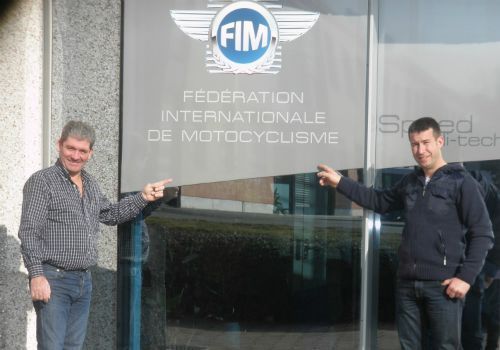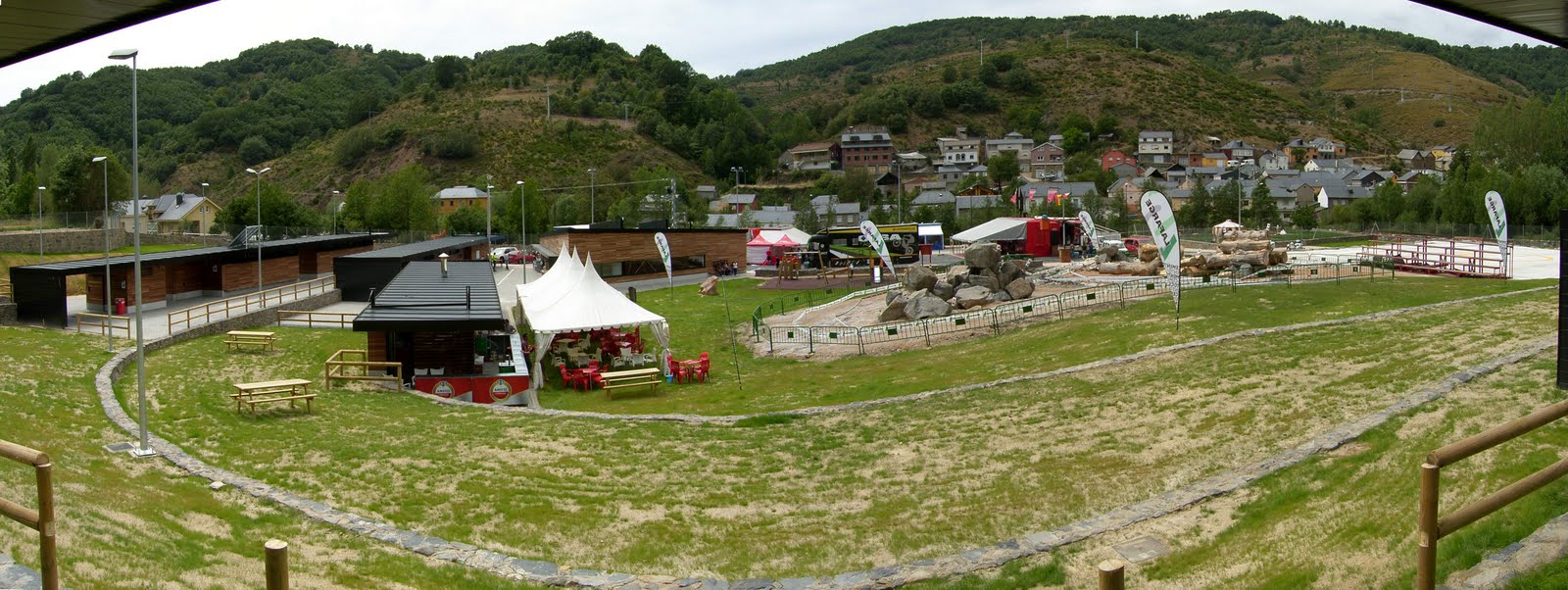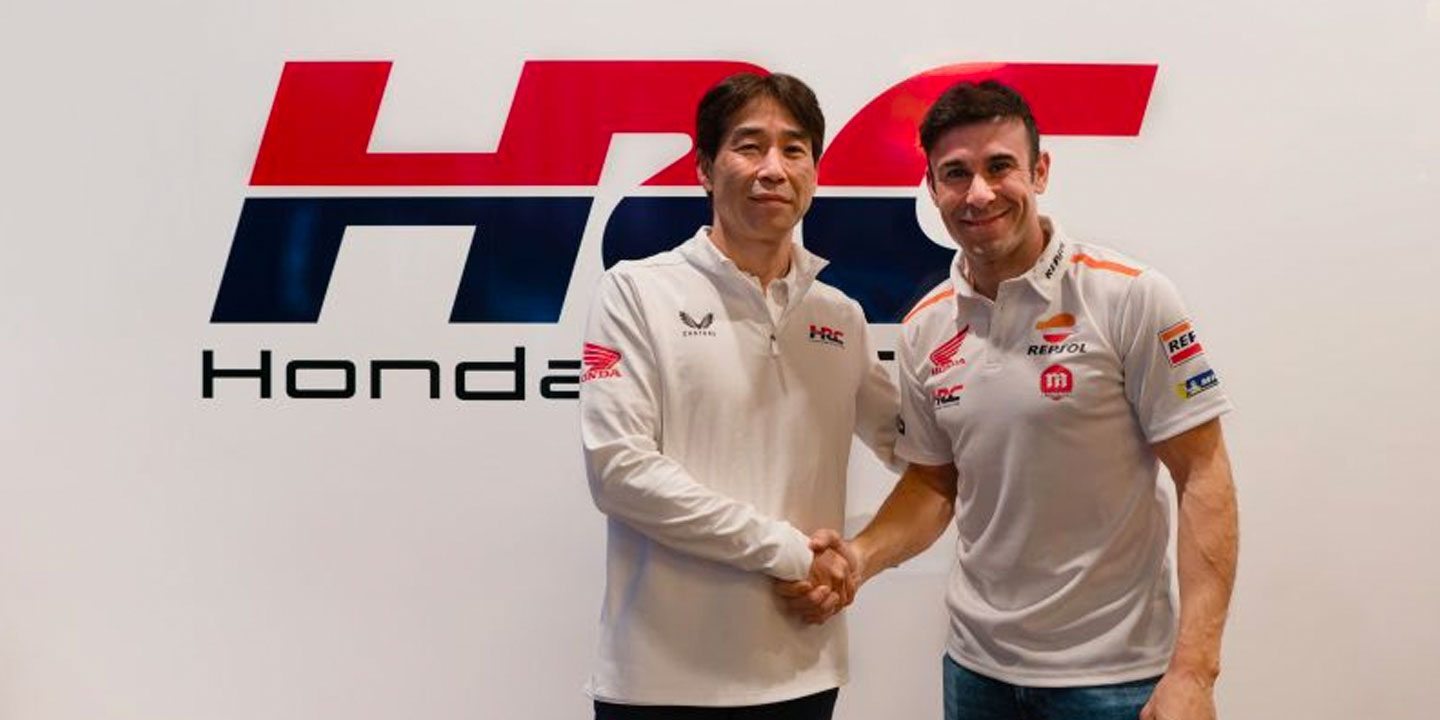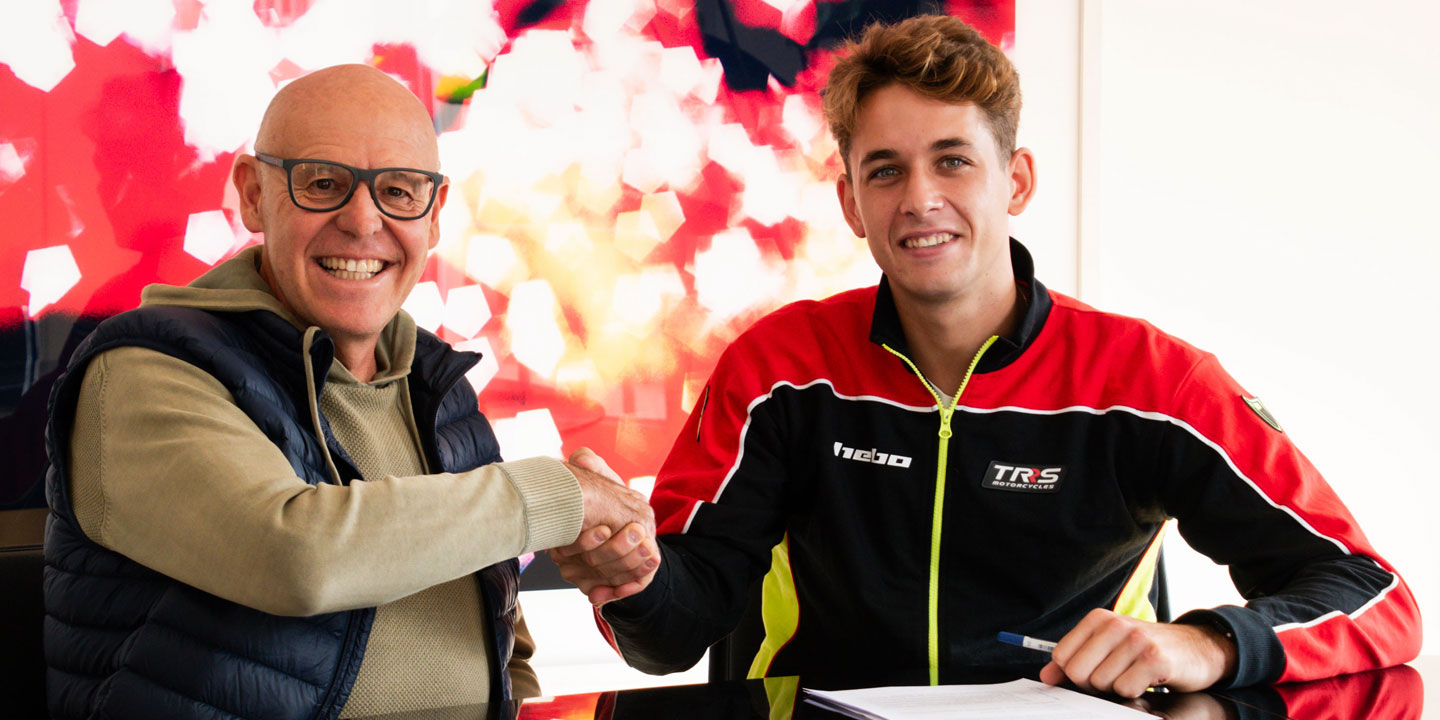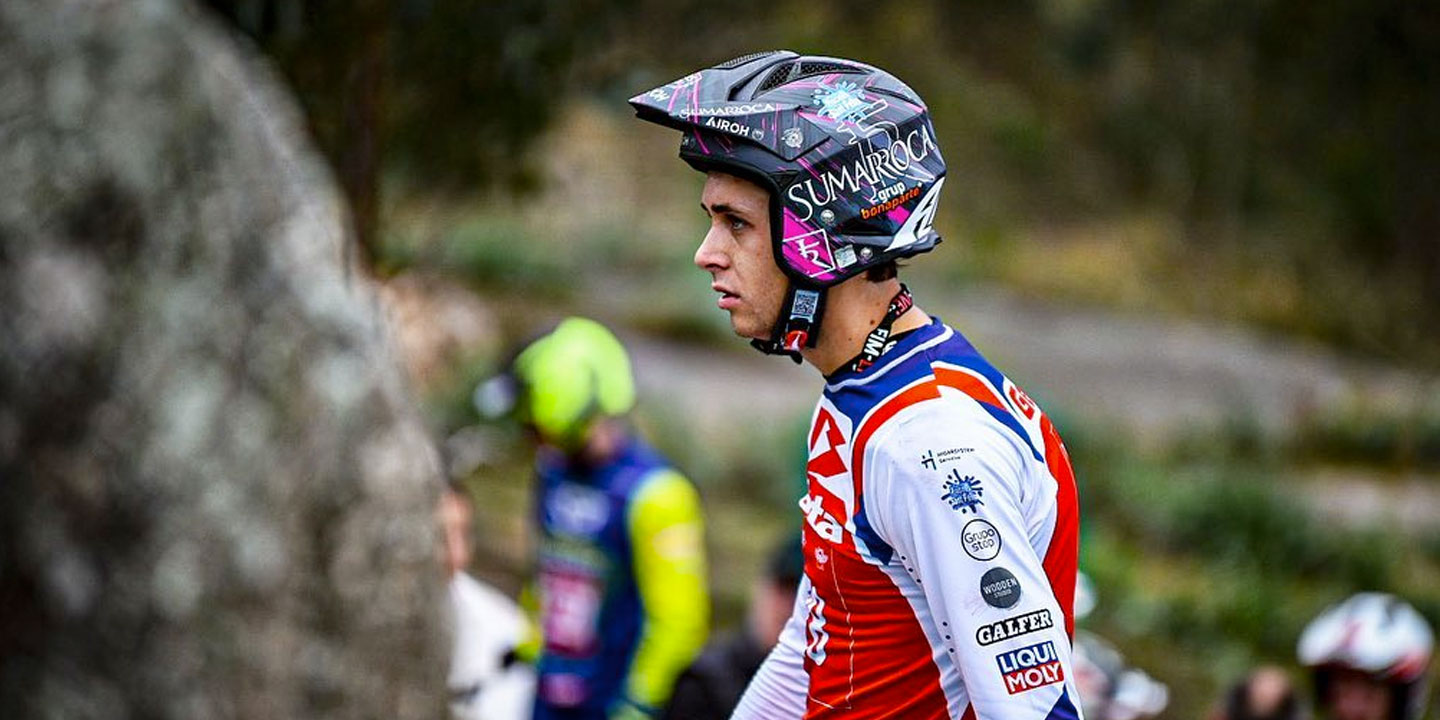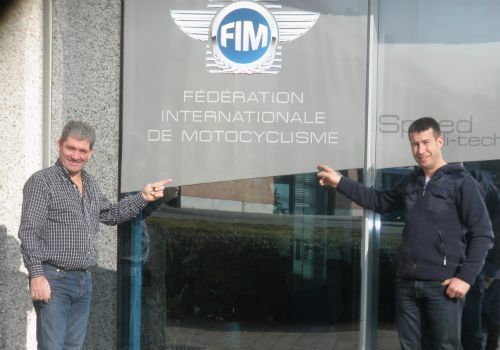
In this interview we want to bring you closer to the other side of the competition. We also do it with an exemplary person and figure, such as Titos Presa, president of the Pobladura R Motoclub and father of one of the most important Permanent Trial Areas at a national level.
The additional merit of Titos is that it has managed to catapult a humble region of El Bierzo (León), such as Pobladura de las Regueras, to become a world-class benchmark trialistic scenario.
In Pobladura they already know what it is to organize a World Championship event, National Classics and Modern Championships, as well as regional events. All this without forgetting the emphasis on training and sports tourism.
For all these reasons, it is a pleasure to know the impressions of someone capable of connecting in an exemplary way such heterogeneous aspects as humility, tourism, nature, sport, trial, regulation and competition. The Motoclub Pobladura R, with Titos at the helm, is an example to follow.
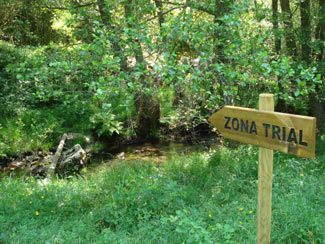
We would like to take this opportunity to congratulate and thank all the Motorcycle Clubs and Federations who, with their work, make this sport possible.
Text: David Quer / Photos: Motoclub Pobladura and Alicia Presa
TRIALWORLD:
What was Pobladura de las Regueras like before the inauguration of the Trial Area?
TITOS PRESA:
Pobladura was a town with a lot of love for trials, but it was necessary to provide it with infrastructures and solve the shortcomings it had in the face of the project we wanted to create.
TW: Has the arrival of the Area enriched the area economically?
TP:
Yes of course. Having these great infrastructures has allowed us to aspire to the maximum at a sporting level. Being able to organise a race of such a high level as a Trial World Championship has a very positive economic impact on the region.
TW: What can an amateur find who wants to travel to Pobladura to enjoy the Trial?
TP:
The first thing you can find is a wonderful terrain for the practice of this sport. The most important thing is that we have an authorization to practice Trial 365 days a year without any type of prohibition by the Environment and Seprona, to which we must add the infrastructure of an incredible paddock with its appropriate facilities.
TW: What profile of people usually visit you?
TP:
Throughout the year, all kinds of fans visit us. From the highest professionals in the world of Trial, to the youngest in learning courses and the rest of the year in groups of amateurs who come to spend a weekend and enjoy Trial.
TW: Your progress has been exemplary. Where is the key to being encouraged to do something so big that it ends up hosting a World Cup?
TP:
The key lies, above all, in the large number of people who have selflessly collaborated over the last 15 years. Nor can we forget the support and trust received by the RFME and our Autonomous Federation (FMCyL).
TW: Have you had administrative difficulties in carrying out the whole project?
TP: Of course it is, but thanks to the support and advice received from different Clubs that have successfully carried out this test before, the final result has been quite gratifying and satisfactory.
TW: In terms of support and collaborators, how is the situation?
TP:
All our collaborators continue to support us as much as possible, although the situation is becoming much more complicated, as some have even had to close.
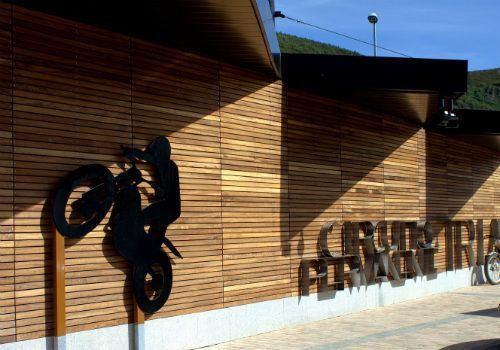
TP:
A priori, when you watch a competition, it seems that a World Cup is very different from a regional or a national classic or modern one, but once you are in the mountains in front of an area everything becomes easier. Even more so when you think about the satisfying results and successes for all that you can get in return.
TW: What is more profitable for you as organisers?
TP:
I think that at the moment, in the situation we find ourselves in, I wouldn’t be able to tell you if any race would be economically worthwhile, but obviously in terms of influx of visitors and impact the World Cup is the one that has the most impact.
TW: Considering that the best riders in the world race in the Spanish Championship, are there areas of a higher level in the World Championship than the National Championship?
TP:
For the TOP TEN riders they are practically the same, but for the rest the world championship has more difficulties.
TW: Do you think the areas could get even more complicated?
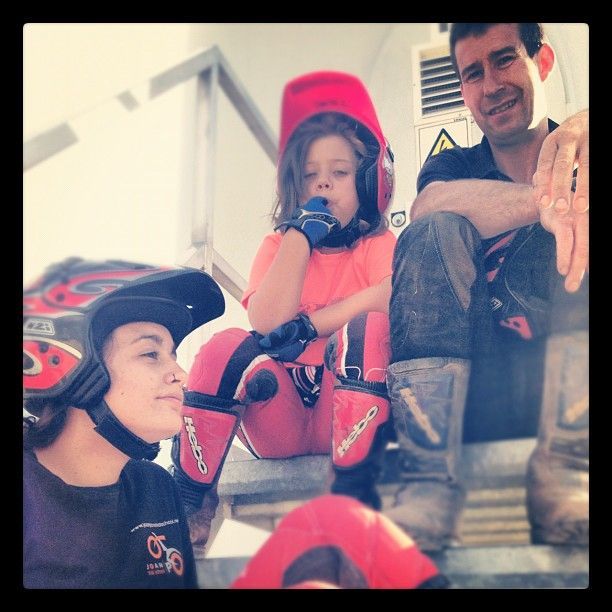
TP:
Referring to the TOP riders, they could always get more complicated, but you have to think that there are too many inequalities between the top 3 or 4 of the rest. With this, the only thing that would be achieved would be to slow down the progression of the rest of the riders.
TW: Would it be more sensible to move towards a British-style non-stop regulation so as not to complicate the sections further and favour new riders?
TP:
As an organizer, I don’t think I have the qualities to respond to this. What is clear to me is that between the Federation and the riders they should reach an agreement to solve the problems of races with such a low volume of entries.
TW: Any anecdote you’d like to share with us?
TP:
In 2008, at a CET event, I spent a weekend with the nerves and pressure of the race without realizing that it was my birthday. During the awards ceremony, my family gave me a cake that I was very excited about.
TW: What is your sporting prognosis for the next five years?
TP:
Right now it is difficult to think about the next 5 years because of the tremendous crisis that this country is suffering. But in the short term we will have a World Cup test in 2013, the World Cup and we will also continue to pay a lot of attention to the learning courses.
TW: Finally, tell us what we are going to find at the national classics in September. Any surprises?
TP:
We will have a longer interzone than usual and for those who have not visited us last year, the wonderful paddock that we have. As for the areas, a wide variety of terrain (rocks, water, dry…)
